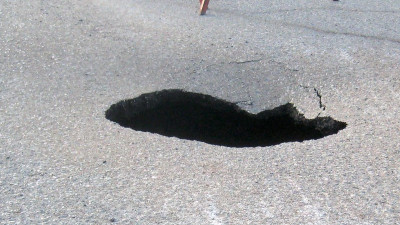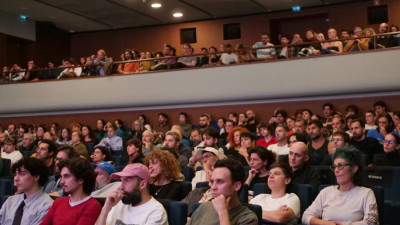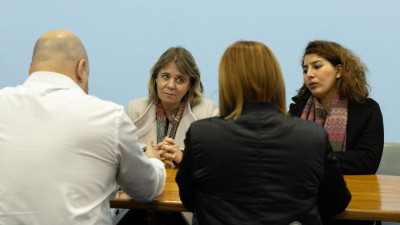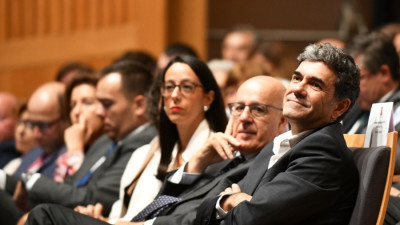25 MARCH 2020
BLOCO DE ESQUERDA’S POLITICAL COMMITTEE RESOLUTION
AN UNPRECEDENTED CRISIS
NOT LEAVING ANYONE BEHIND IN THE PANDEMIC
FACING RECESSION BY PROTECTING PEOPLE
Covid-19 is the first pandemic of the globalization era. It has quickly reached every continent and no country has the tools to respond to it effectively. There is still no vaccine or treatment and, although less aggressive than some other viruses, it poses a real life threat to older people or people with health conditions and is disrupting the health systems in several countries, even the most developed and the most prepared ones.
In the absence of other means or tools, only social isolation seems capable of containing its growth. This is the strategy being currently followed in several countries, including Portugal. This strategy seems to have proved effective in the most affected Chinese provinces, as well as in South Korea. Given that there is still not enough knowledge on the disease’s evolution profile, social isolation seems to be the only way to slow the diseases’ progression, allowing for the preparation of the health systems to deal with the sick and providing time to scientific research.
The containment of the disease has three fundamental obstacles. Firstly, negativism of national governments in the face of the pandemic. This was the case, in a first instance, of the Chinese government (an attitude that was later corrected with the government being now active in the international articulation to halt the disease), but also with the US administration of Trump or the British government of Boris Johnson. This is also the case with the Brazilian government, whose president classifies the pandemic crisis as "a matter of fantasy". Secondly, economic globalisation - which has facilitated the rapid spread of the disease without matching multilateral cooperation instruments - makes it difficult to implement containment measures. Thirdly, containment requires economic activity to halt in several countries for long periods, which will worsen the social and economic crisis.
Thus, the response to the pandemic crisis requires both health measures as well as economic and social protection measures. And it will have to be considered at three steps: the immediate responses, the responses for a long period of containment, and recovery responses post-pandemic outbreak.
We are all NHS
In the United States, while Trump compared the virus to a simple flu, the total cost of a person's treatments can reach $35,000. According to the international reference press, by analogy with pneumonia treatment, the average cost of treatment for Covid-19, covered by health insurances will be $9,700 or $20,300 if complications appear. At the moment, Covid-19 testing in the US is already free, but the treatment is not. Trump's announced " helicopter money " is worthless in the absence of a public, universal and free health service. The health and social consequences of Covid- 19 in countries that, either due to ideological choice or due to the lack of means, have never created universal health systems will be calamitous.
In Portugal, we know we count on the National Health Service. This has been the case for 40 years and now, upon the declaration of the emergency state, even more so. In times when international organisations recommend universal care to contain Covid-19 , Portugal has the guarantee of having a NHS, albeit weakened by chronic underfunding, in which the rule is gratuity and universality. And the NHS professionals, although with legitimate reasons to complain about their careers and working conditions, have placed themselves without hesitation at the forefront of the response to this crisis and are the pride of the whole country.
The sanitary response focuses on health care and social and economic organisation: articulate the increase in the NHS response capacity with containment measures. It is to such complexity that the state of emergency must respond by providing the government with more and safer capacity to intervene in the private economy.
The National Health Service must immediately incorporate the response capacity installed in the private health sector. The response to the emergency is inconsistent with measures of complementarity or punctual contracting. All installed capacity in the country must be articulated and directed by the NHS to guarantee the continuity of essential health care for Covid-19 patients and all other patients. Civil requisition of equipment, professionals and facilities from the private sector is the way to ensure a coherent organization of the response, hierarchized by public health criteria.
Secondly, there is an urgent need to respond to supply failures that are weakening the capacity to respond. The NHS, the security forces and the rest of the Civil Protection, as well as all essential sectors of economic and social activity, need access to equipment and protection, which are lacking in the international markets due to the enormous increase in demand and the new restrictions. From ventilators to personal protective equipment, including masks or disinfectant gel and even laboratory test material, shortages in supplies are being observed. It is necessary to guide industrial production to respond to this urgency, adapting production and preventing exports without state authorization, as well as fixing the prices of essential products.
Finally, containment and the social isolation it forces determine the imposition of borders’ control, geographical quarantine and new rules for various economy sectors (shut downs and changes of operation for the protection of workers and the public in general, as well as the strengthening of production and services in areas fundamental for the response to the crisis). These measures, which the Government has been implementing, should be reinforced in the face of the observed non-compliance in some sectors (companies operating without contingency plans putting at risk the health of its workers, the lack of workers in areas essential to support the most vulnerable populations) and deepened in conjunction with measures to support the economy and employment.
Protecting employment and salary
Though it is already a fact that this will be prolonged contamination and crisis, we cannot predict how long it will last or how deep the economic impact of Covid-19 will be. These unknowns depend largely on the measures that will be adopted both to protect people and the economy.
In the immediate term, we must ensure that the shortage in income that many workers are experiencing, especially the most precarious ones, does not jeopardise access to essential goods and services such as energy, housing or communications. In sectors and places where the provision of these services is assured by the State, their gratuitousness has already been guaranteed (electricity in the Autonomous Region of Madeira) or may soon become so. In the remaining cases, in order to ensure basic welfare conditions for all during the emergency situation, it will be necessary to confront the resistance of the large private comporations and monopolies, from banking to EDP (the largest energy corporation) and including communications. Banks, in particular, which have received billions of euros in public funds, must now be imposed a moratorium on home loans on a permanent basis, provided that the debtor identifies this need.
In order to guarantee the right to housing, urgent measures are still needed to protect tenants. The already decreed suspension of evictions and extension of rental contracts, being measures of the utmost importance, do not solve the problem of the inability to maintain the payment of rents in the face of income shortage. Measures are also needed to strengthen and reorganise the emergency social response (risk groups, domestic violence), to support families and most vulnerable people with the closure of social facilities (kindergartens, schools, ATL (after-school recreation centres, day care for seniors and others) and ensure social protection for workers excluded from regular benefits due to informality or extreme precariousness of their employment (independent workers, domestic workers, undocumented).
But income protection cannot depend solely on one-off measures. Protection of Eemployment is the only guarantee that this unprecedented pandemic will not drive thousands of people into poverty, worsening the future economic crisis. The effort to support the businesses during these months of suspension of economic activity will be worth little if, throughout this period, the quest for the future is destroyed by unemployment. Given that employment is the most important condition for the recovery of the economy and of public accounts, it is urgent to ensure that all businesses, especially large ones, maintain all jobs, permanent or temporary. This objective, crucial for dealing with the crisis and ensuring the future recovery of the economy, has not yet been guaranteed by the government in the measures announced so far.
Thus, Bloco de Esquerda advocates a more robust economic support package combined with greater conditionality, including a ban on dismissals (and the reversal of those already made under the epidemic) and the extension or renewal of precarious job contracts. While the announced credit lines for businesses will be conditional on the maintenance of permanent jobs, this requirement does not apply to fiscal support and others. On the other hand, the plan presented so far is timid, both in tools and in size (its weight in the GDP is three times smaller than those presented in Spain, Germany or France). So far, the Portuguese government has not defined urgent measures to support the population, micro and small enterprises, which are already in force in other European countries (for example, access to electricity and the suspension of rents and mortgages), nor has it advanced more direct measures of protection of the economy, such as production subsidies or the nationalisation of strategic enterprises.
Drawing conclusions: the European Union after the outbreak
The first reaction of the European institutions to the Covid1-9 was limited to generic calls for coordination between Member States. Later, confronted with widespread call for a response in terms of public health and economic recovery, the European Commission announced a financial package made up, in part, from the reallocation of funds already present in the cohesion funds (indeed, the budget allocation that the Commission intends to cut in the next Community budget). Apart from the fact that these are absolutely derisory figures, some of them do not even represent an additional allocation, as they are limited to the redenomination of existing funds.
Meanwhile, after the increase in debt interests of several Eurozone economies, as resulto f the disastrous statements by Christine Lagarde, the ECB announced a programme to purchase public debt securities and financial assets, including corporate debt. This programme helped to counteract this dynamic, but essentially corresponds to the continuation of the securities purchase programmes that were already in place before the pandemic.
More recently, the President of the European Commission announced the suspension of budgetary rules and the easing of rules on state aid to companies. However, these decisions, which have long been proposed by the Bloco and which are more overdue than premature, are an insufficient European response both to the health and economic crises. Basically, the Commission undertakes not to hinder the responses that are already being implemented by the national States and which, incidentally, already presupposed non-compliance with the rules that the Commission has suspended.
The European institutions must not, again, set the trap of the previous financial crisis, when they first called on States to spend and then impose destructive adjustment programmes. The response to the crisis must be maintained throughout the period of economic recovery. It is also necessary to ensure that the financing of such policies is not based - as the current debate seems to suggest -, on even greater indebtedness of member states, which would sink them into further financial dependence. Such dependency would open the door to further austerity offensives, which would aggravate the economic crisis and further weaken public services.
The decision to suspend or relax the rules of the Stability and Growth Pact only denounces the total inability of the current economic governance framework to respond to crises, a fact that has already emerged after the 2008 financial crisis. The finding that only in during state of emergency anti-crises policies are allowed should lead to the amendment of the treaties and the repeal of the Budget Treaty and the Stability and Growth Pact.
The European response should include direct monetary financing from the ECB, notably through a European mechanism supporting policies to strengthen public services, foster economic recovery and public investment, starting with climate transition infrastructure. This fund should be distributed among Member States in proportion to the cohesion funds and should not be conditional on austerity measures or other impositions from the Commission.
In addition to monetary financing, the joint debt issuance could be a minimum solidarity mechanism that would help to match the financing conditions of the different Member States. Despite calls from governments such as the Portuguese, Spanish or Italian governments, Berlin has already rushed to rule out this possibility, which it has dubbed "phantom politics". The failed Eurogroup meeting on 24th March was unable to produce a statement, limiting itself to pointing in the direction of the German option for state loans granted by our already well-known European Stability Mechanism. Therefore there is no consistent signal that these Covid-19 times could be the time for a fundamental change in the European Union. On the contrary, the disintegration trends are reaffirmed in the face of the new recession that the pandemic is heralding.
Finally, this crisis is also a global human rights crisis. The European Union, declaring itself to be in a "state of war" in the face of the pandemic threat, is the same one that despises and represses refugees fleeing real wars that the European arm industries helps to feed. It is therefore the utmost duty of all international institutions to ensure that the fight against this pandemic reaches all people, communities and countries. In this sense, the European Union cannot allow a humanitarian disaster in the refugee camps, where the virus is already spreading. For the same reasons, sanctions which may harm the response of third countries to this crisis must be suspended, so that all states can react and protect their own populations.
An intervening, vigilant and solidaire Bloco
In this new context, Bloco has suspended the agenda of live initiatives, but maintains an activity of permanent monitoring of the situation and conveys its public activity, whenever possible, to online. Thus, regular thematic public sessions will be held on Esquerda.net, and the daily specialized information on the sitel will be reinforced. The Political Commission calls for the participation of the whole Bloco’s activist network in the solidarity networks that are locally constituted, in support of the most vulnerable people and risk groups, as well as in the various forms of distance support and in the effort to map the social irresponsibility of companies that, in the middle of a pandemic, promote labour abuses or redundancies. In order to achieve this, it is particularly important the development of the platform Despedimentos.pt for collecting complaints and disseminating information on labour rights that Bloco has just launched publicly.







